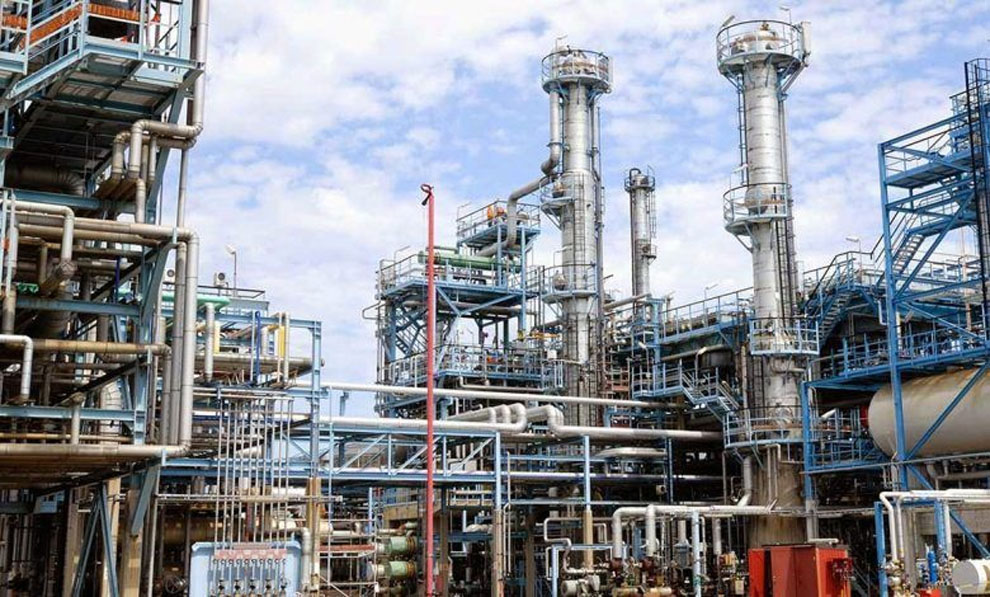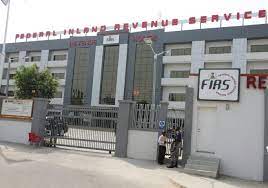Business
Oil&gas industry operators owe FG $6bn, N66bn – NEITI report

Oil&gas industry operators owe FG $6bn, N66bn – NEITI report
The Nigeria Extractive Industries Transparency Initiative (NEITI) has said outstanding collectible revenues due to the Federal Government from operators in the oil and gas industry have risen to 6.071 billion dollars and N66.4 billion as at June 2024.
NEITI disclosed this on Thursday in Abuja at the public presentation of its 2022 and 2023 Independent Oil and Gas Industry Reports.
The report was prepared by the NEITI Board, National Stakeholders Working Group (NSWG).
The report was unveiled by Mr Ola Olukoyede, Chairman, Economic and Financial Crimes Commission (EFCC), alongside Sen. George Akume, Secretary to the Government of the Federation and Chairman, NSWG, NEITI and other dignitaries.
The breakdown of the report showed that outstanding liabilities were 6.049 billion dollars and N65.9 billion in unpaid royalties and gas flare penalties, due to the Nigerian Upstream Petroleum Regulatory Commission (NUPRC) as collectible revenues by Aug. 31, 2024.
It also provided a detailed analysis of the information and data regarding who owes what in outstanding revenues due to the government.
A further breakdown showed outstanding petroleum profit taxes, company income taxes, withholding taxes, and Value Added Tax (VAT), due to the Federal Inland Revenue Service (FIRS), amounting to 21.926 million dollars and N492.8 million as of June 2024.
On fuel importation, the latest NEITI report disclosed that a total of 23.54 billion litres of Premium Motor Spirit (PMS) were imported into the country in 2022, while 20.28 billion litres were imported in 2023.
READ ALSO:
- Forex: Naira hits N1,675/$ at parallel market
- Tapping phones can’t make you rich – Tutor mocks Kombat CEOs
- Tonto Dikeh speaks on betrayal amid drama involving Bobrisky, EFCC
This represented a reduction of 3.25 billion litres, or a 14 per cent decline, following the removal of the fuel subsidy.
A detailed 10-year trend analysis (2014–2023) in the NEITI report showed that the highest annual PMS importation into the country, 23.54 billion litres, was recorded in 2022, while the lowest, 16.88 billion litres recorded in 2017.
The NEITI report also disclosed that a total of N15.87 trillion was claimed as under-recovery/price differentials between 2006 and 2023, with the highest amount, N4.714 trillion, recorded in 2022.
On crude production, fiscalised crude production in 2022 stood at 490.945 million barrels, compared to 556.130 million barrels produced in 2021, representing an 11 per cent decline.
However, in 2023, NEITI’s independent report revealed total fiscalised production of 537.571 million barrels, and 46.626 million-barrel or 9.5 per cent increase from total production recorded in 2022.
A 10-year trend (2014–2023) of fiscalised crude oil production in Nigeria showed the highest production volume of 798.542 million barrels was recorded in 2014, while the lowest, 490.945 million barrels, was recorded in 2022.
The NEITI report further provided detailed information and data on crude lifting, disclosing that in 2022, total crude lifting was 482.074 million barrels compared to 551.006 million barrels lifted in 2021.
“In 2023, total crude lifting stood at 534.159 million barrels, representing an 11 per cent increase of 58.08 million barrels,” the report stated.
On oil theft and crude losses, a total of 7.68 million barrels of crude were either stolen or lost in 2023, representing a significant drop of 79 per cent (29.02 million barrels) compared to 36.69 million barrels either stolen or lost in 2022.
NEITI’s independent industry report carefully reviewed all aspects of the regulatory framework for the oil and gas industry.
This included the legal framework, fiscal regime, roles of government entities and reforms, as well as laws, Petroleum Industry Act (PIA 2021) and regulations relating to addressing corruption risks in the oil and gas sector.
The event was supported by the European Union and the Rule of Law and Anti-Corruprion (RoLAC) programme being implemented by International Institute for Democracy and Electoral Assistance (IIDEA).
Oil&gas industry operators owe FG $6bn, N66bn – NEITI report
Business
Naira exchanges N1,650/$ in parallel market

Naira exchanges N1,650/$ in parallel market
Yesterday, the Naira appreciated N1,650 per dollar in the parallel market, compared to N1,655 on Monday.
Similarly, the Naira appreciated to N1,535 per dollar in the official foreign exchange market.
Data published by the Central Bank of Nigeria, CBN, showed that the exchange rate for the Nigerian Foreign Exchange Market (NFEM) fell to N1,535 per dollar from N1,537 per dollar on Monday, indicating N2 appreciation for the naira.
READ ALSO:
- Tension as Anambra community union asks monarch to stop Ofala Festival
- Exchange rate ends 2024 at N1,535/$1, marking a 40.9% depreciation
- Lagos govt clears traders from rail tracks at Bolade, Oshodi
Consequently, the margin between the parallel market and NFEM rate narrowed to N115 per dollar from N118 per dollar on Monday.
Naira exchanges N1,650/$ in parallel market
Business
Exchange rate ends 2024 at N1,535/$1, marking a 40.9% depreciation

Exchange rate ends 2024 at N1,535/$1, marking a 40.9% depreciation
The exchange rate between the naira and the dollar ended the year at N1,535/$1 representing a 40.9% depreciation for 2024.
The official exchange rate between the naira and dollar closed in 2023 at N907.11/$1 thus depreciating by 40.9% for the year which compares to a 49.1% devaluation at the end of 2023.
READ ALSO:
- Lagos govt clears traders from rail tracks at Bolade, Oshodi
- Four countries that won’t celebrate New Year
- Social media abuzz over Fayose claim of N50m donation to VeryDarkMan’s NGO
Nigeria introduced several foreign exchange policies in 2024 as the central bank expanded on market-friendly forex policies to attract foreign investors.
Meanwhile, on the parallel market where the exchange rate is sold unofficially, the naira exchanged for N1,660 to the dollar when compared to N1,215/$ according to Nairametrics tracking records. This represents a 26.8% depreciation.
Exchange rate ends 2024 at N1,535/$1, marking a 40.9% depreciation
Business
Warri refinery: Marketers hopeful of further petrol price drop

Warri refinery: Marketers hopeful of further petrol price drop
There was excitement on Monday as the Warri Refining and Petrochemical Company (WRPC) commenced partial production.
This is coming after nearly a decade of dormancy as the 125,000 barrels per day refinery was confirmed to be working at 60 per cent capacity, according to the Nigerian National Petroleum Company Limited (NNPCL).
The refinery, inactive since 2015 due to prolonged repairs, reportedly began refining activities last Saturday at its Area 1 plant, where crude oil was successfully pumped into the system.
This was coming about a month after the commencement of operations at the 60,000-barrel-per-day-old Port Harcourt Refinery.
The NNPCL Group Chief Executive Officer, Mele Kyari, announced the resumption of operation at the Warri Refinery during a tour of the facility on Monday.
Kyari was seen in a video posted by Channels TV addressing a tour team, which included the Chief Executive Officer of the Nigerian Midstream and Downstream Petroleum Regulatory Authority, Farouk Ahmed.
READ ALSO:
- Catholic priest sentenced to 11 years for criticising his president
- Warri refinery now operational, doing 125,000bpd – NNPCL boss
- Kwankwaso says no power-sharing agreement with Atiku, Obi
Earlier, Kyari explained that the inspection aimed to show Nigerians the level of work completed so far.
He said though the repairs on the facility were not 100 per cent complete, operations had commenced.
He said, “We are taking you through our plant. This plant is running. Although it is not 100 per cent complete, we are still in the process. Many people think these things are not real. They think real things are not possible in this country. We want you to see that this is real.”
With the addition of Warri Refinery, Nigeria’s refining capacity has further increased with marketers anticipating a further reduction in price of premium motor spirit (PMS).
The 650,000-barrel Dangote Refinery has commenced production in addition to the Port Harcourt Refinery with a total capacity of 210,000 barrels per day (bpd) comprising 60,000 bpd for the old plant and 150,000 bpd for the new plant.
It’s good for business, prices may reduce – Marketers
Major Energy Marketers’ Association of Nigeria (MEMAN) and the Independent Marketers Association of Nigeria (IPMAN) welcomed the revival of the Warri refinery, saying it would deepen competition, diversify supply and ultimately resort to price reduction.
Executive Secretary of MEMAN, Clem Isong in a chat with our correspondent stated that the Warri Refinery is the shortest route to the North, describing its revival as good news.
“The market becomes more competitive and we are diversifying supply,” he said.
On whether it would lead to price reduction, he stated, “There are many factors that affect price, competition is always good and you can always get your product at the best price.”
National Public Relations Officer of IPMAN, Alhaji Olanrewaju Okanlawon in a chat with our correspondent said, “If there is excess supply, it will keep bringing down the price. We now run a free market and it is about demand and supply. It will continue bringing down the price. It will decongest Lagos.”
Energy expert, Dr. Ayodele Oni said the resumption of Warri Refinery would boost the local refining capacity in addition to enabling the country to sell to other neighbouring countries.
“We can refine more and even have some to sell. We now stop being hewers of wood and drawers of water. We add value to what we produce and can make/ do more with our base resources. This is very pleasant news,” he said.
Warri refinery: Marketers hopeful of further petrol price drop
-

 Politics3 days ago
Politics3 days agoGbajabiamila speaks on his rumoured Lagos governorship ambition
-

 metro2 days ago
metro2 days agoFarotimi to pursue disbarment over arrest, defamation allegations
-

 Business2 days ago
Business2 days agoReal reason Dangote, NNPC drop petrol price — IPMAN
-

 Health2 days ago
Health2 days agoABU Teaching Hospital will begin kidney transplant in 2025 – CMD
-

 Sports1 day ago
Sports1 day agoAnthony Joshua prostrates before Governor Abiodun during Ogun visit
-

 metro3 days ago
metro3 days agoEl-Rufai accuses Tinubu govt of Yoruba agenda, Reno Omokri reacts
-

 metro3 days ago
metro3 days agoNigerian govt urged to intervene in Mozambique post-election violence
-

 Politics3 days ago
Politics3 days ago2027: Why PDP shouldn’t field northern presidential candidate – Ex-Atiku campaigner













